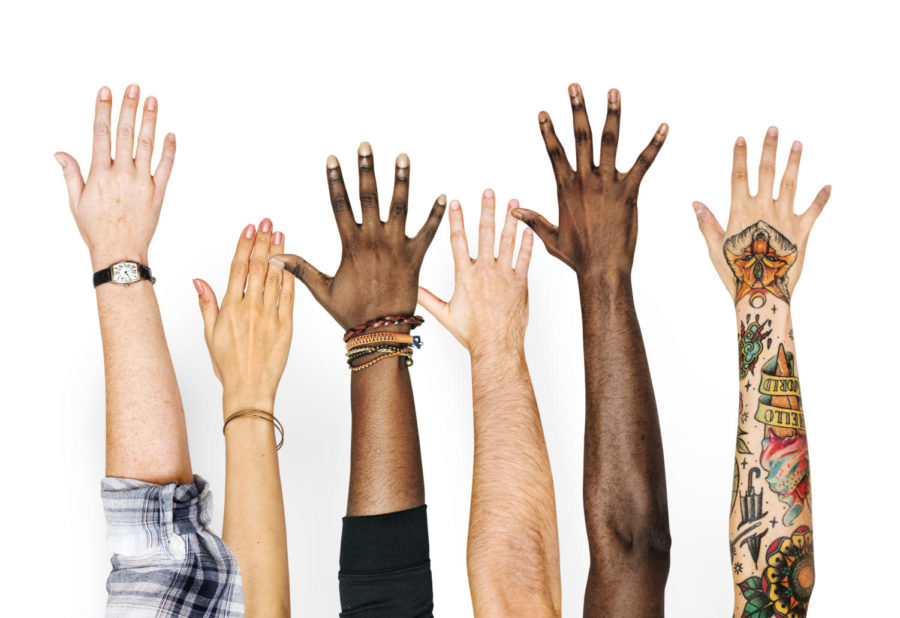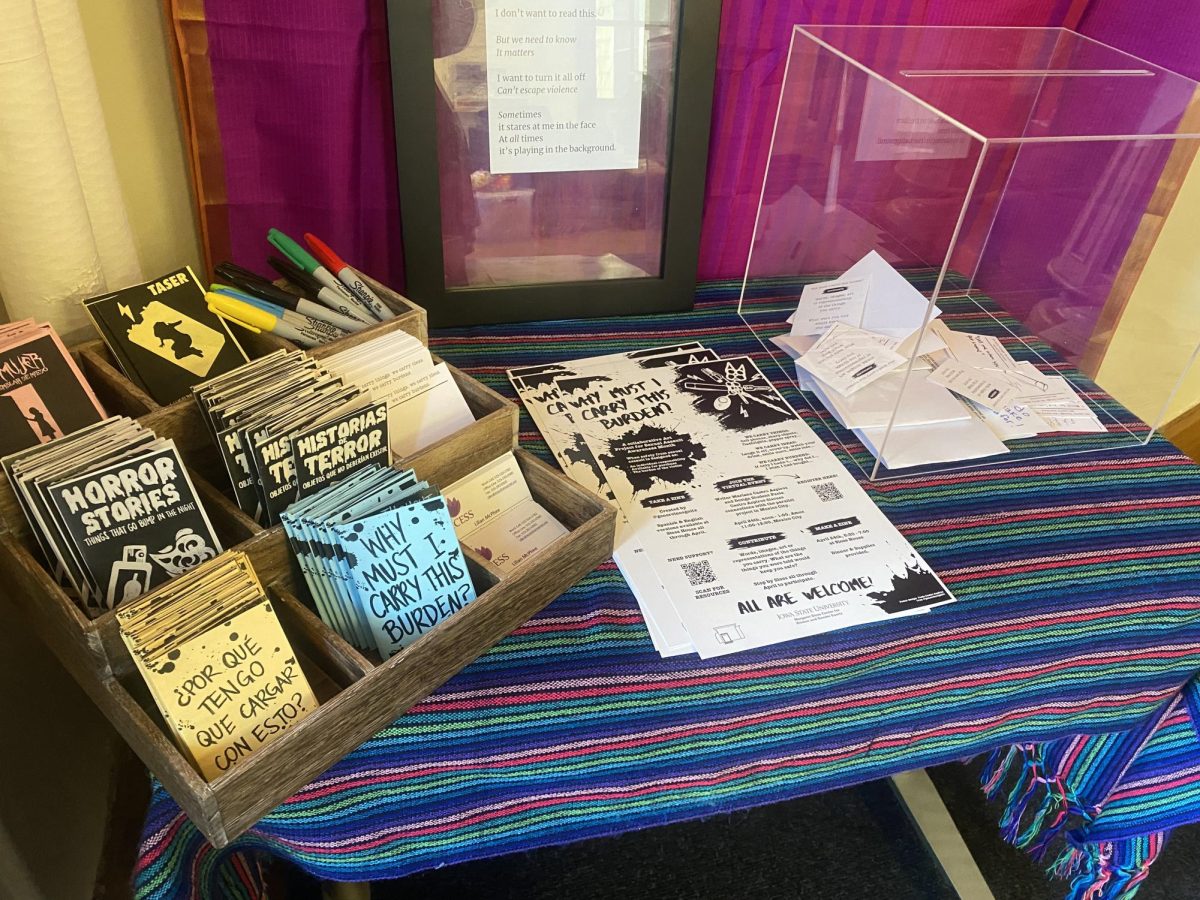Letter: Intersectionality, critical race theory serve as political ideologies
Hands raised
March 3, 2019
I hate to preface any writing or thoughts that are truly my own, but in the interest of trending intersectionality that runs prevalent on college campuses today I will do so: I am a biracial man, graduate of Iowa State last year, and future graduate student beginning in the Fall of 2019. To me, as I do not subscribe to intersectionality but rather to individuality, my race is the most arbitrary and least important aspect of myself. For many, however, race functions as the foundation of political ideology. Even more troubling is that for many more, these racial or intersectional political ideologies function more akin to a secular “religion.”
Take Tuesday’s visit by guest lecturer Professor Robin DiAngelo and her talk regarding her book “White Fragility: Why It’s So Hard for White People to Talk About Racism.” The term “white fragility” was coined and is defined by DiAngelo as “a state in which even a minimum amount of racial stress becomes intolerable, triggering a range of defensive moves.” The framework and wording of this definition is intentional in its attempts to deflect any rebuttal that any white person may hold, especially white “progressives” who in virtually every instance, if asked, would claim to be white allies of intersectionals and race theorists. As an example from her ISU speech, DiAngelo lectured that white progressives can negatively limit the discussions of race when race is brought up as a topic by trying to prove their lack of racism. To DiAngelo, and many other intersectional theory academics and advocates on campuses across the county, being white automatically births whiteness and white privilege upon any white person. Subsequently, whites are told not only are they disqualified from having racial perspectives and views, but all whites are also guilty of being racist by default. DiAngelo’s previous comments from a 2012 Q&A session in Bertha Knight Landes City Hall in Seattle are perfectly clear, “The jig is up, okay, all white people are racist, from the way I’m talking about it.” Thus, the framework for her career arguments.
Being borne into the Christian religion, I was told that all human beings are born with original sin that must be answered and repented for in the name and presence of God. For intersectionals, whites must answer and repent (acknowledge white privilege) to subscribers of intersectionality for white people’s original sin of being Caucasian in the presence of any minority or minority authority before “white” perspectives can be shared. Ironically, DiAngelo is white, but she has continuously “repented” enough to be a prophet in the name of intersectionality to speak on the issue. This is how critical race theory and intersectionality work.
Martin Luther King Jr. would roll in his grave if he could see how his most famous line, “I have a dream that my four little children will one day live in a nation where they will not be judged by the color of their skin, but by the content of their character,” has morphed into something that is completely antithetical to that idea. In fact, if one probes deeper into intersectionality and race theory’s canon, you will see what any rational person may view its contents as actual racism.
DiAngelo, and many like her, clearly do not believe in individuality. The root concept of DiAngelo’s “white solidarity” claims that all whites hold views, perspectives and experiences that are all innately the same. The opposite of this is true as well, as people of color all must share views, perspectives and experiences that coincide. But since minorities are just that, minorities, they must battle to topple majority “whiteness.” I am here to tell you, that as a biracial man, I do not subscribe to this theory. I oppose intersectionality at every turn. I am nobody’s victim, and nobody can purport what my thoughts, views and experiences are based on my least important and most arbitrary aspects. If anyone does engage in that stereotyping behavior, that is racism. That goes for whites too. Just because you are white does not mean your voice is any less on campus or anywhere, nor do your own personal individual experiences matter less. Critical race theory and intersectionality theory are not academic truths. They are political beliefs at best, and religious dogmas at worst. Never apologize for who you are, whatever you may be. If you know you are not racist, if you hold no ill will based upon race, then do not apologize or acknowledge those people when they claim you are a racist by default for being white. Do not give credence to “white privilege.” We are individuals not to be collectivized based on race. Do not let anyone assert to know your status as privileged based upon race. It simply is not academic. The funny thing about the concept of white privilege is that, when asked to qualify and quantify what white privilege is, the answer is often, “it is everywhere, you can see it everywhere.” That is the exact answer we hear from religions to quantify and qualify the nature and existence of God, and whichever way you spin it those are not evidence-based answers. Instead, those answers are dogmatic drivel.
Concerning too is the way in which intersectionality is treated academically. A public university should not endorse any political or religious ideology as truth, but too often we allow intersectionality and critical race theory to be advocated and taught as clearly factual. In the Iowa State Daily’s article on the DiAngelo lecture, an education student was quoted asking,
“For anybody who thinks that what DiAngelo is saying is bogus or untrue, I would challenge them to do their research and think past what they know and what they’ve been socialized to know and just be able to be open to a different thought.”
Right back at you. Your views, and DiAngelo’s, are not truth. Ideas formed through the racial lens are simply political ideologies, not moral authorities.

















